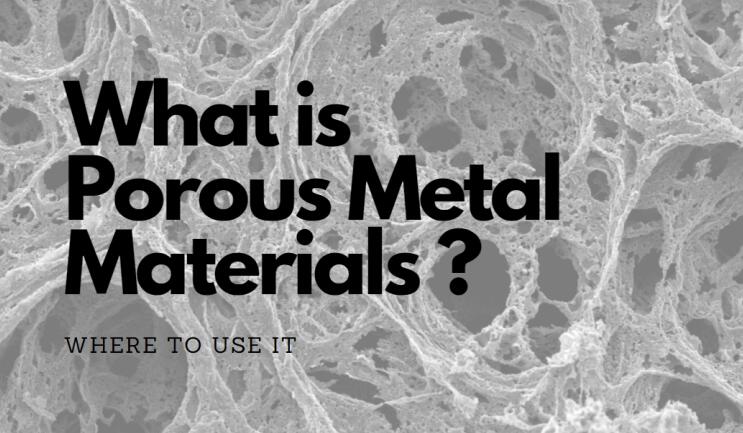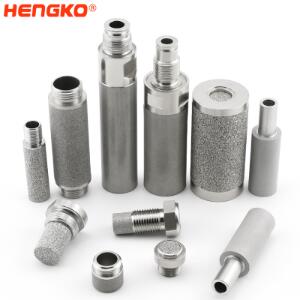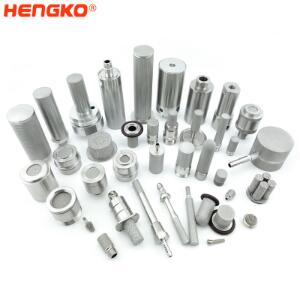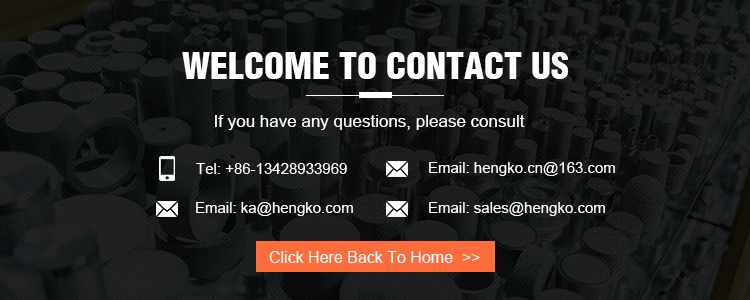What is Porous Metal Materials

The Answer is just like the words: Porous Metal, porous metal materials is a kind of metals with a large number of directional or random pores distributed diffusely inside, have a diameter of about 2 um to 3 mm. due to the different design requirements of the pores, the pores can be of foam type, coupled type, honeycomb type, etc.
Porous metal materials can also be divided into two major categories according to the morphology of their pores: free-standing pores and continuous pores.
The independent type of material has a small specific gravity, rigidity, good specific strength, good vibration absorption, sound absorption performance, etc.;
the continuous type of material has the above characteristics but also has the characteristics of permeability, good ventilation, etc.
Because porous metal materials have the characteristics of structural materials and functional materials, they are widely used in aerospace, transportation, construction, mechanical engineering, electrochemical engineering, environmental protection engineering, and other fields.
Powder sintered metal porous material is a porous metal with a rigid structure made by forming and high-temperature sintering using metal or alloy powder as raw material. Characterized by a large number of internal connected or semi-connected pores, the pore structure consists of a stack of regular and irregular powder particles, the size and distribution of pores and the size of the porosity depend on the powder particle size composition and preparation process.
Common materials of sintered metal powder porous materials are bronze, stainless steel, iron, nickel, titanium, tungsten, molybdenum, and refractory metal compounds.
Sintered stainless steel filter have excellent corrosion resistance, oxidation resistance, wear resistance, and mechanical properties (ductility and impact strength, etc.). Sintered stainless steel porous materials can be used in the fields of sound dissipation, filtration, and separation, fluid distribution, flow restriction, capillary cores, etc.
Sintered titanium and titanium alloy porous materials not only have the properties of ordinary metal porous materials but also have the unique excellent properties of titanium metal such as low density, high specific strength, good corrosion resistance, and good biocompatibility, etc. They are widely used in food and beverage, environmental protection and energy, fine chemical, medical and pharmaceutical, electrolytic gas production and other industries for precision filtration, gas distribution, decarbonization, electrolytic gas production, and for making biological implants.
Sintered powder nickel-based porous materials have the advantages of corrosion resistance, wear resistance, high mechanical strength at high and low temperatures, thermal expansion, good electrical and magnetic conductivity, etc., and can be applied to high-temperature precision filtration and electrodes for rechargeable batteries. Among them, the porous materials of Monel alloy can be used to make filter elements in seamless water pipes and steam pipes in power plants, filter elements in seawater exchangers and evaporators, filter elements for sulfuric and hydrochloric acid environments, filter elements for crude oil distillation, filter equipment used in seawater, filter equipment used in the nuclear industry for manufacturing uranium refining and isotope separation, filter elements in equipment for manufacturing hydrochloric acid, filter elements in alkylation plants in oil refineries, and filter elements in low-temperature areas of hydrofluoric acid systems in refineries. filter elements in the low-temperature area of hydrofluoric acid systems in oil refineries.
Sintered powder copper alloy porous material has the advantages of high filtration precision, good permeability, and high mechanical strength, and is widely used in compressed air degreasing and purification, crude oil desanding and filtration, nitrogen and hydrogen filtration, pure oxygen filtration, bubble generator, fluidized bed gas distribution, and other fields in pneumatic components, chemical industry, and environmental protection industry.
If have interested to know what is sintered metal filter and how the metal sintered, you can check the article link as follow: https://www.hengko.com/news/what-is-sintered-metal-filter/
Sintered powder intermetallic compound porous materials are more researched and applied in TiAl, NiAl, Fe3Al, and TiNi, etc., which integrate the functional characteristics of porous materials and intermetallic compounds. Fe3Al porous materials can be applied in the fields of direct purification and dust removal of dust-containing gases at high temperatures, such as energy (clean combustion combined cycle power generation process and pressurized fluidized bed coal-fired power generation technology), petrochemical, TiNi porous material has special quasi-elasticity and overall memory effect, which makes it ideal for human bone implant material.
Still Have Any Questions Like to Know More Details For the Porous Metal Filters, Please feel Free To Contact Us Now.
Also You Can Send Us Email Directly As Follow : ka@hengko.com
We Will Send Back With 24-Hours, Thanks for Your Patient !





